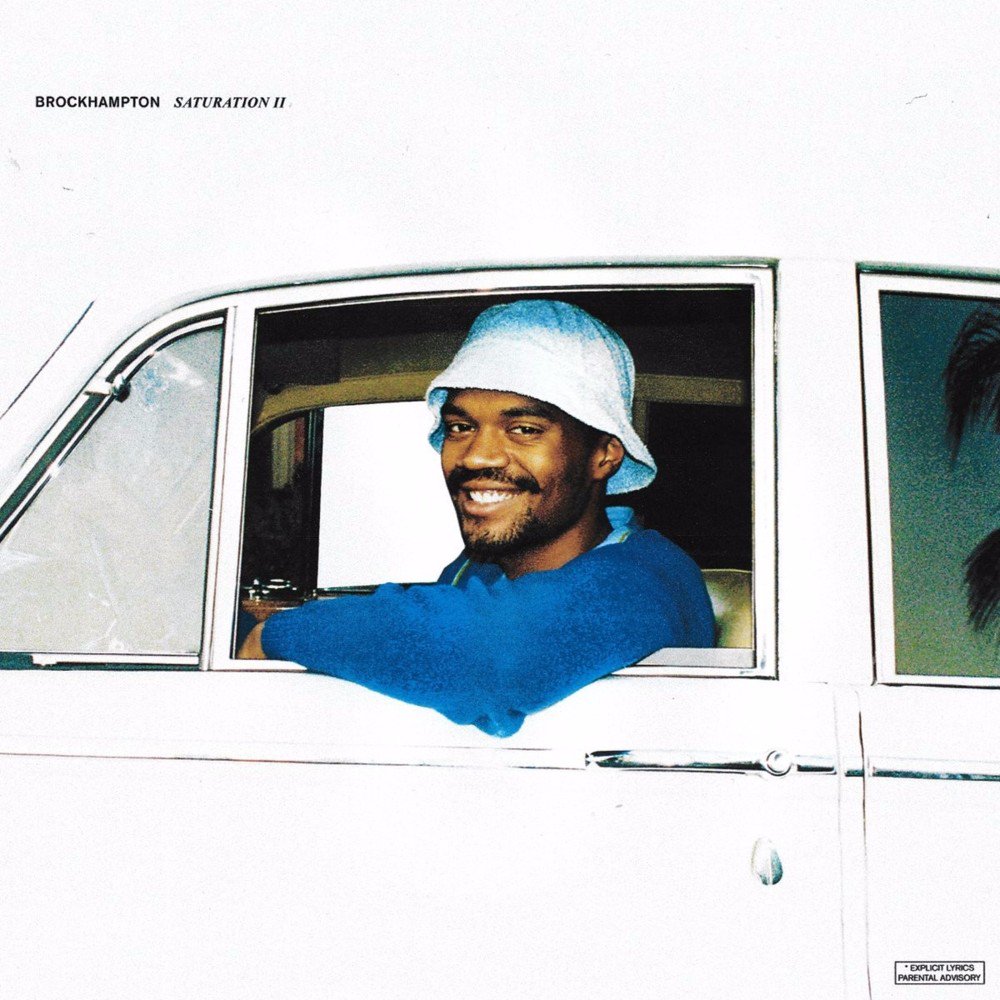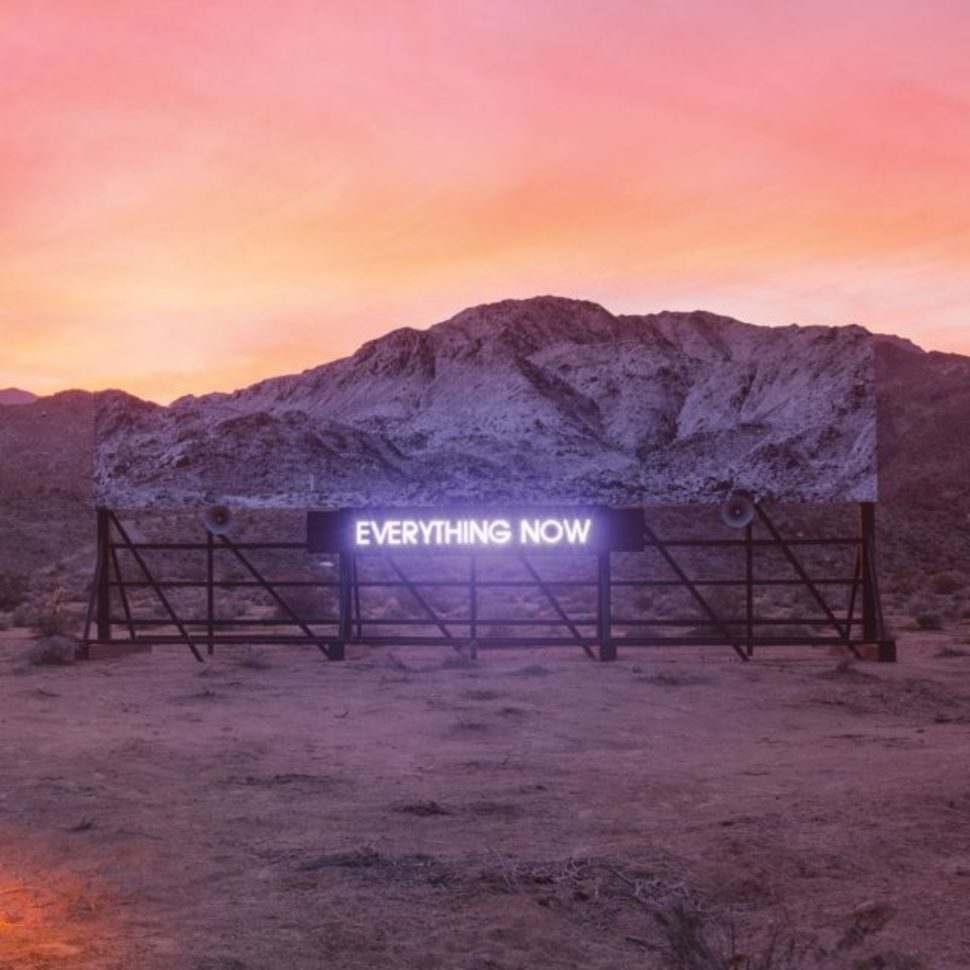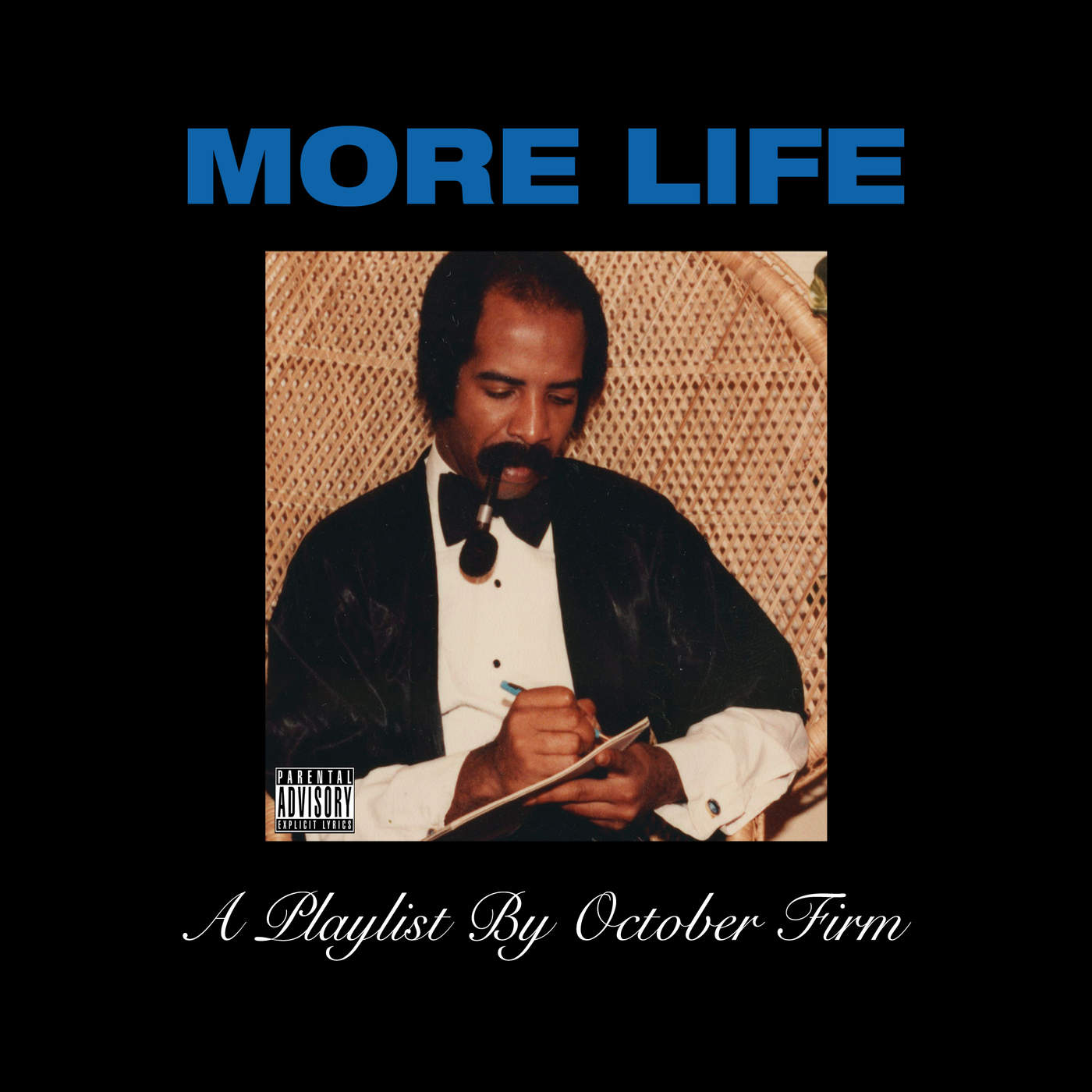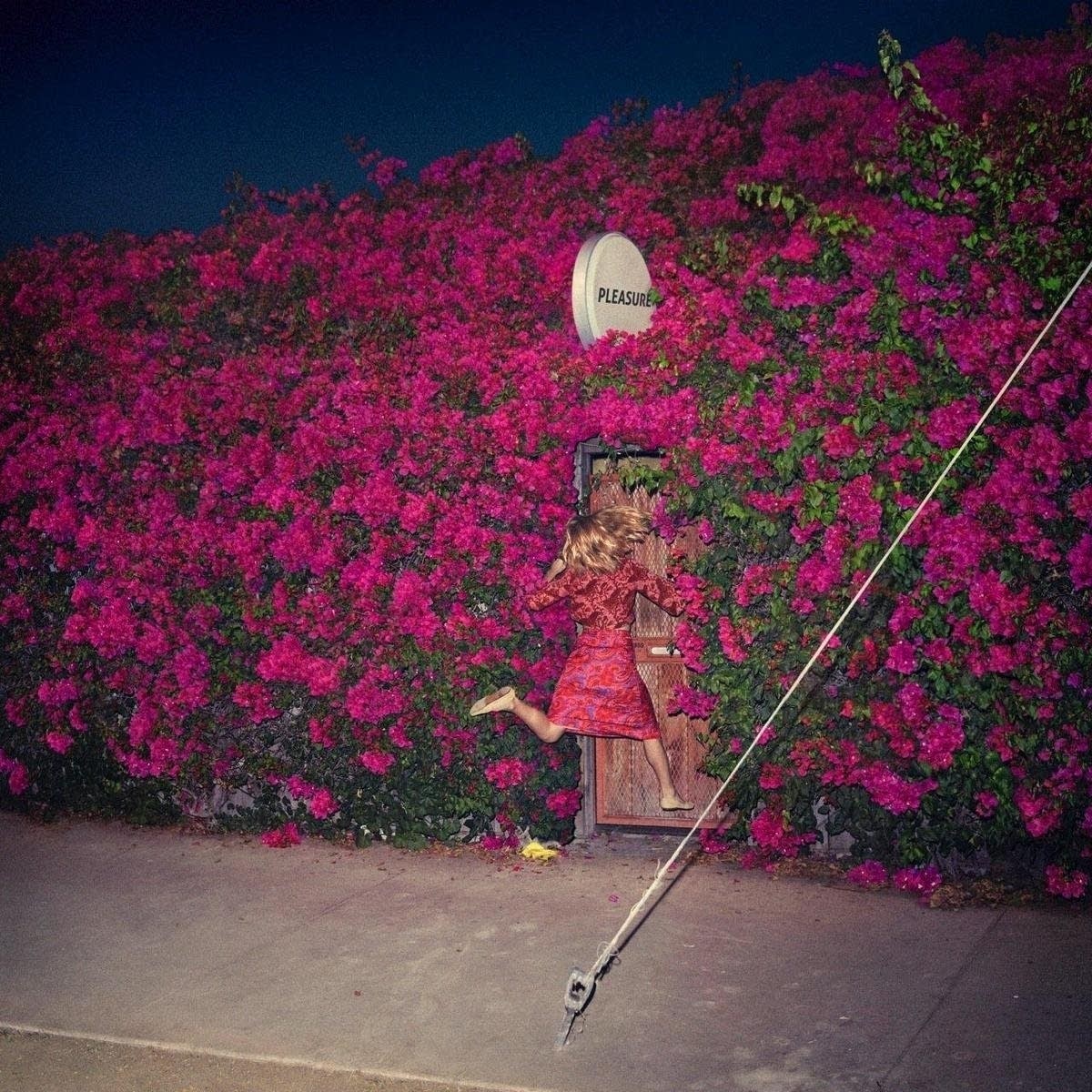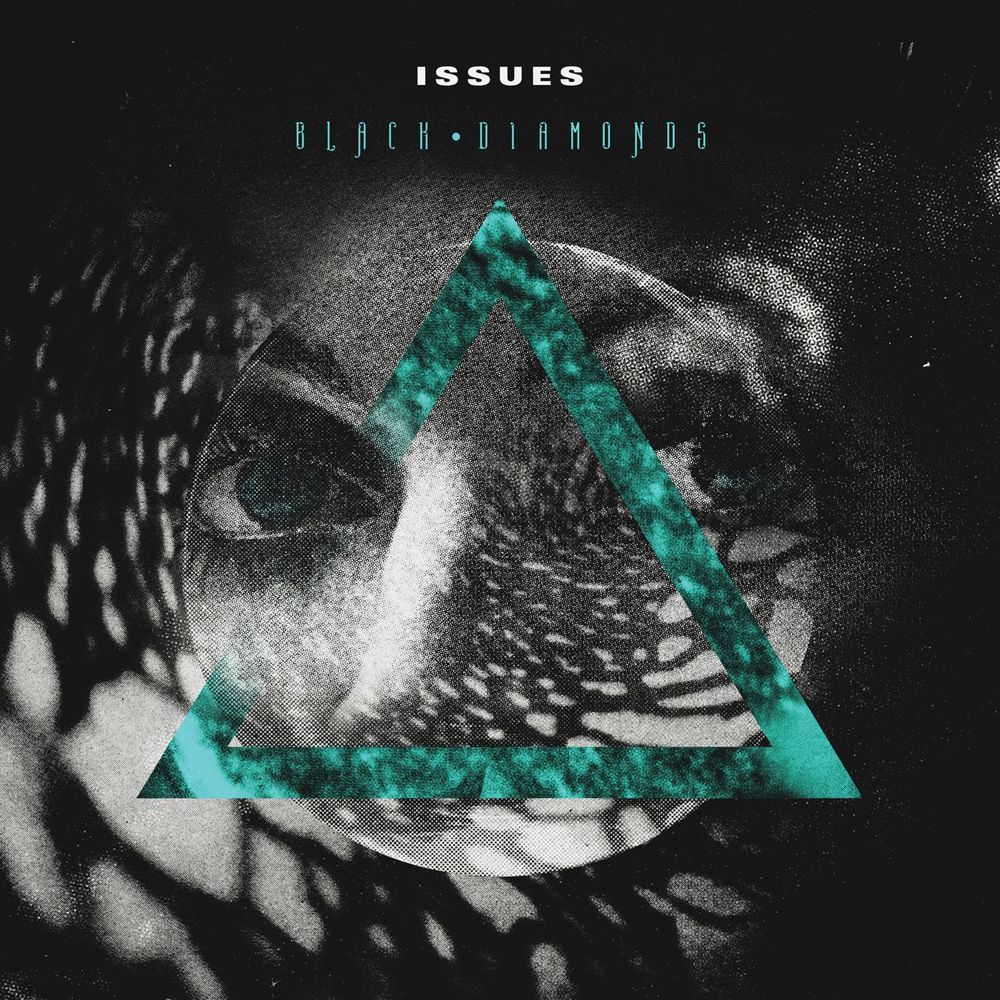Swim Into The Sound’s 20 Favorite Albums of 2017
/Last Year
2017 sucked. Politics have sucked. People have sucked. My diet has sucked. Everything is falling apart in slow motion. The entire year has felt like one prolonged exercise in frustration as we collectively fight back with about as much power as a punch thrown in a dream state.
I spent the first half of this year working a job that was fun, creatively fulfilling, paid well, and in my field. That ticks pretty much all of the “career boxes” one could ask for, so as turbulent as the gig was, I was disappointed when it came to an end over the summer. I’ve spent the back half of this year wrangling random freelance gigs, volunteering, looking for a job, and reveling in ambiguous employment.
It’s no coincidence that, after a six-month break, I began writing here regularly back in May because I truly had no other creative outlet at the time. I’d just like to say: thank God for this blog. Swim Into The Sound has proven to be an excellent way to expel my oft-overflowing creative juices, and writing here has provided me more solace, motivation, and guidance than I can ever put into words.
I’d also like to extend a personal and sincere thanks to you for reading. Whether this is your first time here or you’ve been subscribed for months, every reader means the world to me. On top of increased readership, I’ve also received some absolutely incredible responses to my writing this year. I’ve grabbed the attention of artists I love and podcasters that I look up to. I made the front page of /r/indieheads (my internet home), and people that I know in real life have discussed Swim Into The Sound write-ups with me. Most of the time I just write this stuff, edit it until I’m slightly less ashamed, then throw it out onto the internet. It’s forever-astonishing to me that anyone engages with these words, so thank you. It’s been a spectacular journey, and there are already many cool projects brewing for 2018. I can’t wait to see where things go from here.
To keep from drowning you in personal details, let’s just get straight to the main event. As bad as some parts of 2017 have been, it was actually an incredible year for music. Unlike the past, 2017 has felt like a year with no “clear” album of the year winner. There was no Blonde, Carrie & Lowell or To Pimp a Butterfly. No album that made a massive culture-wide impact, or even wormed its way into my list of all-time favorites yet. Instead, it’s been a year of many, many, many great albums, which in some ways is more exciting.
2017 has also been a year of upheaval. A year where women could rule, creeps could be called out, and our world was at risk of ending at any moment. It’s an exciting, hopeful, draining, and terrifying time to be alive. It has also been a year of unexpected surprises. I’ve found welcome homes in unexpected places, both online and in real life, and these communities have helped make me a stronger person.
2017 was also a year of discovery. I’ve been to more concerts in the past 12 months than I have the rest of my life combined. Thanks to a free 6-month TIDAL subscription, I’ve made more musical discoveries in 2017 than any year previously. From Hamilton to Swans, I’ve broadened my horizons more this year than ever before.
There are a lot of things to say about 2017, but if nothing else, it was the year that I learned about the power of weirdness. The strength that all of us have to stand up to the people in power. The creative potential that lies within all of us. I’ve found excitement in the new, and comfort in tradition. As always, this blog is a place to celebrate both old and new, but December specifically is a time to pause and reflect on the year that’s just passed. The things that inspire. The things that bring hope. The magnificent creations.
I’ve been celebrating 2017 for the entire month of December, and this post officially marks the end of “List Season” here on Swim Into The Sound. If you haven’t checked out our Diamond Platter Awards or Un-Awards, please feel free to peruse them for an even more complete picture of both the good and bad that 2017 has had to offer. But from here on out we find only the great. The impeccable. The cream of the crop. The best pieces from a year of many fantastic works.
So here’s to the weird. The new, the fresh, and the bold. Here’s to staying strong. Here are my 20 favorite albums of 2017.
20 | Slowdive - Slowdive
Slowdive’s self-titled album plays out like a fever dream. From its first notes, the record warmly envelops your entire body, consuming you like a long-lost childhood memory. As the album wears on, it transports the listener further, slowly shepherding them as they venture from their starting point on earth until they’re floating weightlessly in space surrounded only by far-off glittering lights and nostalgic memories from a life that’s not their own.
In keeping with the introduction’s theme of “discovery,” Slowdive is a group that I’d never listened to until this year. Needless to say, the fact that the band’s self-titled fourth album was their first in 22-years was lost on me. Despite the fact that I went into the album fresh and lacking context, the impact of Slowdive’s 2017 release was still severely felt.
There’s a sense of strange familiarity and nostalgia at play throughout Slowdive. Songs like “Star Roving” and “Sugar for the Pill” have an immediately-accessible grungy 90’s sound in which Sonic-Youth-esque vocals pair with reverb-ridden post-rock guitars and precise drumming. Using this word feels weird (especially for a record that isn’t even my favorite of the year), but Slowdive is perfect. It’s a flawless self-contained adventure that’s both accessible to newcomers and satiating to long-time fans. It’s the purest distillation of what dream pop is all about. It’s a monumental record of whirring soundscapes that shift like slowly-moving giants and crash against the listener like dense ocean waves. Slowdive is a masterful release from a band who’s not afraid to wait for greatness.
19 | SZA - CTRL
A “summer album” if I’ve ever heard one, SZA’s long-awaited debut LP is a bright, shimmering, and sunny record packed with songs of unrequited love punctuated by brief moments of carefree enjoyment. Songs jump from soaring infectious melodies to harrowing tales of normalcy at a moment’s notice, making for a manic listening experience that’s just as fun-loving as it is heartbreaking.
CTRL is an album about a normal girl by a normal girl. A collection of songs about the human experience from an honest and decidedly-female perspective. It’s like the R&B version of My Woman sprinkled with breakneck vocals, raw lyricism, and Blonde-esque instrumentation. Even when singing about well-trodden topics like late-night hookups, SZA manages to make everything feel refreshing and new. You get the sense that countless long hours and many late nights were spent crafting this album because the entire LP feels well-worn, well-loved, and well-thought out. CTRL is a single confidently-delivered package that glistens and beams in the sunlight of the listener’s heart.
18 | Jay Z - 4:44
It’s embarrassing to admit, but it’s confession time: until this year I’ve never listened to a Jay-Z project in full. I’d heard the hits, the guest verses, the collaborations, and I know he’s got a trilogy of near-perfecthip-hop albums, but to be honest, I’ve just never been that into Mr. Carter’s approach to rapping. When I heard people raving about his thirteenth album, I decided that I had nothing to lose, so I took full advantage of my TIDAL subscription, set my reservations aside, and give it a shot.
Ever since Beyonce’s 2016 album I’ve been invested in the “Lemonade Narrative,” and it turns out 4:44 followed that album up directly by providing listeners with some sense of conclusion and finality.
While I came for the People Magazine drama, I stayed for everything else. It turns out 4:44 is a stunning, honest, and compact album that features Jay-Z at his most reflective and adult-like state yet. I guess scandal, nearly losing your wife, then having twins is enough to change anyone for the better. On top of Jay’s refreshing take on himself, we have an album that’s centered around his old sample-based soul sound. Helmed entirely by No I.D., this led to a record that feels complete, consistent, and singularly-visionary throughout. While Jay-Z has been resting on his laurels artistically for some time, this album proves he still has a strong voice, important things to say, and an impactful message that’s worth conveying in 2017. As he moves into the position of hip-hop’s father figure, I’m now excited for the first time in my life to see what Mr. Carter has in store for us next.
17 | Father John Misty - Pure Comedy
It was unclear where Father John Misty would go after 2015’s breakthrough I Love You, Honeybear. Turns out the answer was everywhere. From tormenting Ryan Adams to duetting with Tim Heidecker, Tillman’s extra-musical antics are simply too innumerable to list in one single blurb. The good thing for fans was, as overwhelming as the avalanche of news updates sometimes felt, each headline managed to be entertaining and (more often than not) resulted in fresh music.
When it came time to release his third album under the Father John Misty persona, Josh Tillman turned his gaze outward. Shifting from the self-destructive personal tales of Honeybear, Pure Comedy finds Misty openly waging war against the universe and everyone in it. In the album’s slow-mounting opening track, a winding piano skitters around Tillman’s biting stanzas, ensuring that neither it nor the listener are trampled underfoot. As the lyrics outline the cosmic absurdity of existence, the piano pulls away, the vocals mount, and a gently-brushed drum begins to keep time just as Tillman belts out the album’s title. It feels like an announcement. An exercise. The catharsis of two albumless years and an election gone awry.
Featuring grand, swelling, and sometimes rambling songs, Pure Comedy blurs the lines between a post-apocalyptic near-future and present day. The album becomes a microscope through which humanity is observed, and everyone’s a smug asshole including our narrator.
The album’s definitive moment comes with its last two songs “So I’m Growing Old on Magic Mountain” and “In Twenty Years or So” which together make for an epic 17-minute meditative send-off. Both songs are massive, colorful, and awe-inspiring ballads that hit you with a crippling emotional gut punch before landing on what’s essentially a twist ending. Best experienced as the conclusion to the album’s 74-minute journey, Pure Comedy may take some time to sink in, but once it does, it will linger with you forever.
16 | (Sandy) Alex G - Rocket
Alexander Giannascoli is an enigma. A wonderfully-gifted singer, willfully-obtuse songwriter, and prodigy of melody, Alex G first rose to prominence through a series of increasingly-prolific Bandcamp releases culminating in DSU, his indie-wide breakthrough. Since then, he’s made a name for himself continuing to record artistically-acclaimed small-scale releases in between working with Frank Ocean, and more recently, he’s undergone a name change rebranding himself by adding “(Sandy)” to the front of his title.
Much like the man behind the music, Rocket is a mysterious and wandering album full of bright sounds and brilliant ideas. From jaunty country duets to auto-tuned croons, and even hardcore noise rock screams Giannascoli wields an astonishing amount of genres effectively throughout Rocket’s 41 minutes. Despite the fact that nearly every song takes a different musical approach, the entire record maintains a strong sense of self and wholeness throughout. Each additional sound and layer of weirdness adds merely one more brush stroke on to the bigger story that’s already been painted, resulting in a beautiful and one-of-a-kind work.
15 | Kendrick Lamar - DAMN.
Kendrick Lamar’s fourth LP is one of the most important records of 2017. A shared experience, a communal soundtrack, and a cultural anthem, DAMN. is a stadium-packing monument to the marginalized, underrepresented, and underserved. Despite an impressive prelude, intricate self-referential throughlines, and conceptual frameworks (both real and imagined), the Compton rapper’s 2017 release is fantastic but falls just short of his last two LPs.
Taking neither the cinematic route of Good Kid, M.A.A.D City, or the jazzy cultural takedown that was To Pimp A Butterfly, DAMN. lies somewhere in the middle as a primarily-autobiographical record that finds Lamar contextualizing his existence within a broader cultural landscape. Each song is a personal unmasking of the man behind the music, and the demons that live within him. Each word lets the listener a half-step deeper into Lamar’s psyche.
While DAMN. isn’t bad, I feel the need to defend my decision to place it towards the back of this list (in opposition to apparently every other publication this year). At a certain point, whatever album followed the magnum opus that is To Pimp a Butterfly was destined to be a disappointment, or at the very least feel like comparing apples to oranges. Don’t get me wrong, I’ve been enjoying DAMN. all year (and listened to it more than almost every other album of 2017), but I can’t shake the feeling something is missing that kept it from being truly next-level.
Part of the reason I’d rank DAMN. below some of Lamar’s earlier albums is how piecemeal it feels. Songs stand alone (for better or worse) and rarely feel like part of a cohesive point that the artist is making. While this allows for some incredible variation and sonic experimentation, it also means DAMN. feels formless and aimless at times. The reason it gets #15 is that even a good-to-great Kendrick Lamar album is better than most other records any given year.
“HUMBLE.” is an unparalleled cultural anthem. “DNA.” is a blood-pumping, muscle-flexing, and stank-face-inducing track. “FEAR.” is a foreboding tale that recounts three pivotal ages in Kendrick’s life. Each of these songs have become standouts of 2017, and even some of Lamar’s best. A commentary on race, sexuality, and our nation, DAMN. is just a pit stop in the career of the greatest rapper alive.
14 | Idles - Brutalism
I’m a punk at heart. While I’m not as angry as I was back in high school, I often forget how deep those roots go and how influential that genre of music has been for me. Sometimes a record comes out that rekindles a long-lost love and can bring you back where you were at a specific moment in time, and for me that’s Brutalism. Hailing from Bristol, Idles are an English punk band that has been active for nearly half a decade at this point. After a stringofEPs, Brutalism marks the group’s first official LP, and while it’s only the group’s debut, that five-year cooking time is evident in how fleshed out this record is. It feels like a career high, and it’s only our introduction to the band.
“Heel / Heal” kicks things off like a powder keg as the drum unrelentingly pounds forward with engine-like momentum. Soon singer Joe Talbot enters the mix and exasperatedly exclaims “I’m DONE” as the bass and guitar explode beneath him. Tracks like “Well Done” and “Date Night” perfectly capture the directionless anger that accompanies mid-20’s joblessness and sexual frustration, all captured in biting two-minute takes that bounce back and forth between the walls of the listener’s skull.
“Mother” is the album’s snarling high-point as the group weave a tale of matriarchal political betrayal. Hooking the listener with a twist chorus as a well-placed pause allows them to unveil a beautifully-poetic “Mother… Fucker.” It’s barebones, simplistic, straight-forward punk music that evokes the best parts of the Dead Kennedys, Black Flag, and The Sex Pistols, all presented in a surprisingly clean and well-produced 40-minute package.
13 | Tyler, The Creator - Flower Boy
There’s no doubt about it; Tyler, The Creator grew up before our eyes. The enigmatic figurehead of Odd Future made a name for himself at the dawn of the New Internet by leveraging a deft understanding of new media and shock value as fuel for the unparalleled rise of a group of 20-something Californian teenagers. Tyler’s solo career has wound from Horrorcore to Death Grips-esque industrial hip-hop, but on his latest LP, he eschews all that for a veneer up-front of transparency.
On the opening track “Forward” we witness Tyler as he wrestles with everything from waning popularity to racist cops to his own sexuality. It’s here that we begin to realize we’re in store for a more honest record. While the album still has some scattered bangers like “Who Dat Boy” and “I Ain’t Got Time!”, the remainder of the album is a jazzy and shockingly-reserved outing that allows Tyler to vulnerably open up more than we’ve ever seen before. “November” and “See You Again” both revel in nostalgia while “911 / Mr. Lonely” and “Where This Flower Blooms” offer hopeful rays of positivity that claw towards the possibility of a brighter future.
When Flower Boy leaked two weeks ahead of its scheduled release date, most of the discussion online surrounded “Garden Shed,” the album’s revealing centerpiece that, combined with a handful of references scattered throughout the record, seem to allude to Tyler coming out of the closet. While there have been severalhints up to this point, Tyler addressing this topic so entirely feels like the coming of a new age. The hip-hop figure who made a name for himself eating cockroaches and embracing vulgar darkness is now crooning and singing about kissing white boys. It’s refreshing, shocking, and reassuring all at once. Undeniably his best work, the world now finds itself rapt as we wait for the newly-matured Tyler, The Creator to make his next move.
12 | Julien Baker - Turn Out The Lights
The most spiritual experience I’ve had with music this year (maybe ever) has been interacting with Julien Baker’s Sprained Ankle over the summer. I say ‘interacting with’ because it was much more than just listening. The album deeply affected me. It touched me. It was affirmation that everything was going to be okay and my feelings weren’t invalid. I spent a month or two going on long, multi-hour, half-drunk, wistfully-existential walks, the feelings of which I detailed in this write-up over the summer. What initially began as a lazy way to get my Fitbit steps in, quickly evolved into therapy. Something I needed to do to work out issues I was going through at that time. My first job had crumbled before my eyes, and I’d never felt more isolated and alone. When Baker announced her sophomore album was coming out by the end of the year, I found myself emotionally-drained, but hungry for more.
Turn Out the Lights begins with the arid creak of an old floorboard and a slowly-mounting piano line. That piano bleeds into “Appointments,” and soon Baker unveils herself as the force of nature that she is. The keys become eclipsed by a faintly-glimmering guitar as Baker regretfully explains that she’s spending the night at home. The song slowly mounts into an explosive cry of shaky self-assurance “Maybe it’s all gonna turn out alright / Oh, I know that it’s not / but I have to believe that it is.”
The remainder of the album’s songs follow a similar pattern, often focusing on one single instrument and Julien Baker’s incredible voice as she outlines tales of death, regret, and religion. It’s a heart-breaking album of stunning moments and impeccable songwriting that manage to articulately explain the dark, dull pain of a deep depression. I believe in God and Julien Baker.
11 | Smidley - Smidley
I first stumbled across Smidley in a half-hearted attempt research the bands who were opening for Tigers Jaw on tour this spring. After 33 minutes of listening to the group’s breezy self-titled record, I calmly collected myself, picked my jaw off the floor, and listened to the whole thing again.
Probably one of my biggest “surprises” this year, Smidley’s self-titled record is brought to us courtesy of Foxing’s frontman Conor Murphy and features a collection of ten refreshingly-unique pop-punk tracks. Often fueled by bile and anger, the songs on Smidley range from soccer mom takedowns to dead dogs, yet every song bears the same airy, happy, summery disposition, and I can’t think of any other artist that could deliver a chorus of “Fuck This” in such a pleasant tone.
While “Fuck This” may have been a personal chant of mine throughout 2017, the most striking moment of the album comes in its closing song. Preceded by a dark ballad of drool-inducing drug binges, “Under The Table” is a cresting pop-punk depiction of a relationship that finds Murphy singing the song’s chorus in a whispered voice. As he sings the song’s title, his words are punctuated by a towering drum strike and the track explodes to life as a set of double-tracked vocals pair with a bouncy bass and rigorous guitar. It’s a cathartic and throat-shredding closer that left me in awe, the ballsy ending note to an album that surprised me with brilliance from its first seconds.
10 | BROCKHAMPTON - SATURATION II
My first exposure to BROCKHAMPTON came when I sat down to listen to the first of three records the group released this year. Encouraged by a friend to check them out, I went into the Saturation Trilogy knowing nothing more than the fact that BROCKHAMPTON was an Odd Future-esque music collective that preferred to be labeled as a “boy band.”
The first thing I heard when I hit play on “HEAT” was 10 seconds of a garbled ambient hum. Suddenly a series of drum hits and a nastily-blown out bass forced their way onto the track accompanied by the first set of lyrics: “I got pipe dreams of crack rocks and stripper poles.” and every muscle in my body stiffened at once. After these introductory lines, the group’s members went on to trade bars about everything from race to self-medication over the song’s four and a half minutes before culminating in a brutish scream of “FUCK YOU.” I was hooked.
Gripped by the song’s lyrical and instrumental ferocity, I was hungry for more, but the next song sounded nothing like the first, and the third sounded nothing like either before it… yet they all worked. The first tape’s other highlights include the pop-culturally-dense “STAR” and “BUMP,” a track that jostles the listener from pop-punk-esque singing to gritty hip-hop bars. The boy band seemed to be intentionally trying to throw the listener off at every turn, packing as many ideas, sounds, voices, and topics into one project as humanly possible, and the crazy thing is that it worked.
At this point, it practically feels cliched to talk about BROCKHAMPTON’s origin (a group of teens who met on a message board and all moved into a house to create music), but it feels necessary because it gives context to the group’s output. Having released three albums, a documentary, TV show, and tour all within 365 days is a feat. The fact that all each of these multimedia creations are of the same impeccable quality is what’s worth writing home about. BROCKHAMPTON are prolific young creators incarnate. Handling everything from production and art direction in-house, the group is DIY-ing their way to the top of the rap game through sheer brute force.
On Saturation IIthe group finds an even more refined sound. I went in cautious, wondering if they could even brush the same level of greatness as we saw on the first Saturation, yet the group managed to exceed even that. Early album cut “QUEER” represents a single-song encapsulation of what makes the group special, jumping from punchy “fuck you” hip-hop to infectious mid-verse chants to jarring crooned choruses, the song swings between multiple sounds and genres all in less than four minutes. On the opposite end of the spectrum, the penultimate “SUNNY” interpolates “Torn” by Natalie Imbruglia in a moment that sent me into a powerful spiral of nostalgia the first time I heard that iconic late-90’s guitar slide.
To put it simply, everything is better on Saturation II. The earworm-ready choruses are refined further, the verses are tighter, and the beats are even wilder. The whole album is more polished and cohesive with songs that can work on their own and exist within the context of the larger album. Flawless, unreal, and unlike anything else this year.
9 | Half Waif - form/a
Half Waif’s form/a EP is an introverted, lush, and secluded 19-minute collection of electronic songs single-mindedly concerned with emotions and moods. Sung solely from the perspective of frontwoman Nandi Rose Plunkett, this EP finds her reflecting on impactful and pivotal moments from her childhood using a cold Celtic electronic soundscape as her icy backdrop.
Throughout the EP Plunkett finds herself reckoning with what it means to be a woman in the world, and what decisions have led her to this exact moment in time. Her voice is haunting and calculated. Her keyboards swell just when she needs them to, and the drums kick in at just the right moments. It’s clear that Nandi has a strong command over every piece of the world that she’s exposing you to, a carefully-constructed recreation of her memories, tragedies, and thoughts forever documented lovingly on the 19 minutes of form/a.
It’s an album about missing out, getting lost in your own head, and vanishing into nothing. Opening and closing with a set of lyrics about emotions, she finally reveals the album’s meaning in “Cerulean” as she sings “My mood has no form / It sits on my chest heavy and warm / My mood is not an invited guest / It takes over my body and gives me no rest.” It’s a striking and introverted sentiment dripping with emotion and rawness, delivered over a cold and unfeeling electronic beat.
A seemingly common topic for Nandi, this idea of formless and untamable moods is something that feels surprisingly missing from music. Songs are so often about feelings and the actions that they inspire, but rarely ever the moods themselves. form/a is a beautiful and sprawling expedition of the self that feels familiar and foreign at once.
8 | Sorority Noise - You’re Not as Alone As You Think
For a while Sorority Noise was just another half-silly, half-serious emo band that sang about girls, and sad feelings. While I thought I preferred the group’s earlier carefree approach to emo, 2017’s You’re Not As _____ As You Think takes the seriousness of 2015’s Joy, Departed to the next level musically, lyrically, and mentally.
In an interview with Stereogum, the group’s primary musical force Cameron Boucher detailed an experience that served as the record’s driving force. Following the suicide of a childhood friend, Cameron found himself back in his hometown:
“Sean had been passed away for about a year, but I didn’t remember that. And so I was like, I’m gonna drive by Sean’s house and just stop by and say hi. And then I drove to his house, and when I pulled up in front, I realized he wasn’t there. That’s what the chorus of [No Halo] is about, and the whole song in general… I think I literally just sat in my car and wrote 90% of the lyrics right there.”
We saw the immediate effects of Sean’s suicide on It Kindly Stopped for Me, an EP that was never meant to be released to the public but was put out in hopes that it would help others in the same way that it helped Cameron. In that same interview, Boucher revealed that he primarily writes songs from emotion, as a way to cope with reality, not really thinking about what they mean or needing to explain them down the road. What we see on You’re Not As _____ As You Think is someone who’s sat, meditated, and grown from the pain of this loss. It tackles drug abuse, depression, religion, and everything in between with some of the most raw, honest, and heartfelt lyrics that I’ve ever heard.
In late October the group released Alone a follow-up 7” that was meant to fill in the blank space in You’re Not As _____ As You Think. Containing two songs that add an additional layer of gravitas, and reflection to the full LP, these two releases combine into one singularly-impactful emotional gut punch that candidly addresses depression openly and honestly.
7 | The National - Sleep Well, Beast
On the cover of The National’s new album, we see a black and white photo of a happy home. Composed of five straight lines, the house is simple and picturesque as if it were drawn by a child. The sky is grey and muted like a fall morning at 3am. Inside of the house, we can make out a handful of figures. The house is missing a door. We’re not sure what’s happening, we’re not sure if they’re happy, but all we know is that we’re on the outside looking in.
The music contained behind this cover is suitably just as grey and simplistic. Jutting around drunkenly with jagged songs of sadness and regret, Sleep Well, Beast is The National’s great monument. I’ve been listening to the band casually for years now, but nothing has ever grabbed me the way that this record has. I listened through a few times thinking ‘this is good’ but then one fateful day, an old relationship sprang back into my life while “Carin at the Liquor Store” was playing and The National made cosmic sense to me at that moment. Suitably wistful, overwrought, and trapped in their own heads, this is music made for turbulence of the soul. Music for a world that doesn’t make sense, but you must exist in nonetheless.
On a late October episode of Comedy Bang Bang, the National found themselves playing acoustic renditions of Beast songs in between interviews with zany characters. Before playing “Guilty Party,” lead singer Matt Berninger explained that the record about “looking over the edge of ‘what if?’” It’s an album about hibernation. About emerging from depression and combating the dregs of the world with dogged consistency if nothing else.
Beautifully-composed with dashes of electronic elements and long, swaying melodies, every song contained here showcases a different strength of the band. It’s an album that makes you happy to have lived. Even if you’re encountering a constant stream of bullshit, slowly being beaten down and drained by the great torrent of life, Sleep Well Beast assures you it’s all worth it by letting you know there’s a light at the end of the tunnel. Hope for us all in the grey dawn.
6 | Phoebe Bridgers - Stranger in the Alps
Phoebe Bridgers’ soul is haunted. Throughout Stranger in the Alps, her guitar, voice, and thoughts drip with tangible darkness and unshakable regret. It’s a 44-minute soul-bearing expedition that will leave you physically and emotionally drained by the end.
Beginning with “Smoke Signals” a rolling, arid track that finds our hero dying vicariously through Lemmy and Bowie, the album twitches and swirls with life, reveling in the shifting blackness of the afterlife. Throughout the record we see flashes of a life well-lived: singing at funerals, unearnest hypnotherapist visits, and basking in the half-comfort of a shower beer. All of these tracks center around Bridgers’ confidently-delivered vocals, impeccable guitar work, and brilliant stretches of self-destructive storytelling.
One of the most haunting works comes at the album’s halfway point in the form of “Killer,” a measured piano-ballad track that finds Bridgers taking after indie folk Gods like Sufjan Stevens by comparing herself directly to a renowned serial killer. In the back half of the song she flashes forward to her own death as the piano flutters and a subtle hum of strings enter the mix. Stranger is one of the best debut albums I’ve heard in years, and as Bridgers embarks on a nationwide tour on the back of this record’s success, I absolutely can’t wait to see what she has for us next.
5 | The War on Drugs - A Deeper Understanding
Long-time fans will know that when I call something “background music” I mean it as a compliment. For months now, The War on Drugs A Deeper Understanding has been my go-to “background album” for nearly every situation and I believe it deserves props for that alone. When no other music presents itself to me, when I can’t think of anything else to listen to, when my queue is empty, this record is always there.
There’s something to be said for an album that’s calm and steady enough to lie in the background, yet musical enough to stand on its own. Some of my all-time favorite groups like Mogwai, Explosions in the Sky, and Russian Circles are all bands that I adore and lovingly refer to as background music. They’ve helped me read, write, and create. They’re the perfect soundtrack to life, and now A Deeper Understanding joins their ranks as a fantastic album of infinite subtleties, musical vastness, and ever-cresting sonic landscapes.
On top of this situational flexibility, A Deeper Understanding also manages to improve upon the band’s previous effort Lost in the Dream which is astounding. The highs are louder and more blistering, and the lows hit even harder. Every song is a journey, and each solo implores you to get out and explore the world. A romantic record that inspires with each breath it takes.
4 | Mount Eerie - A Crow Looked at Me
Phil Elverum has a message to declare: Death is real. Recorded after his wife’s passing in July of 2016, A Crow Looked at Me is the draining of grief. An exorcism of pain. A confessional, first-hand account of the soul-wringing agony that is inflicted in the wake of the death of a loved one. How you live. How your infant daughter lives. The crushing pain of mundanity and how everything you see is a memory. A past. A future. A plan that never got to unfold. It’s not an album, it’s grief incarnate. It’s not fun to listen to, but it’s one of the most important releases of the year. The more you dig into the album, the more it hurts. Each line is a painful, poetic, being-shifting barb in which you empathize with Elverum unlike any other artist.
Recorded entirely on his wife’s instruments, the physical record has exact times demarcating how long each song was written from the time of her death. Some songs use a respirator for the beat and contain lyrics about how even the old garbage in the upstairs bathroom serves as a reminder that your loved one is gone. Every moment is beautiful, and every second hurts. It hangs heavy in your chest and will remain there for the rest of your life.
3 | Lorde - Melodrama
On the polar opposite of Crow, we have Lorde’s Melodrama a bright, joyful, and carefree album that, yes, is about a breakup, but handles that topic with as much happiness as a pop album possibly can.
Lorde’s first album in four years, Melodrama was one of 2017’s most highly anticipated releases. From aged poptimists to teen streamers and radio-ready moms, everyone was looking forward to the iconic New Zealander's return to music, and the most miraculous thing is that Lorde managed to please every one of these groups with the same album. Melodrama is musical enough to stand on its own against “high art,” poppy enough to be played on the radio, and has just enough flourishes to reward repeat listening.
To put it simply, Melodrama is the best of every possible world. A sophomore album that manages to please fans both old and new. A shining example of the heights that the pop genre can achieve, and the barriers it can break. It’s the continued and never-ending story of how one sixteen year old can rocket herself from a 2013 Song of the Summer to industry mainstay, segueing all that into the creation of one of the best releases of an entire genre. Melodrama is a pure, unbridled, and brilliant success on every level.
2 | Feist - Pleasure
Like most other denizens of 2007, my first exposure to Feist was through her fluke pop hit “1234.” As previously documented, I was slavishly devoted to late-2000’s-era pop music, so this song’s cultural impact was not lost on me. Like many other listeners, the song quickly faded from my consciousness and I wrote Feist off as a one-hit-wonder. After all, “1234” was essentially a Sesame Street song and, while catchy, wasn’t particularly deep. So I categorized her in the same vapid Adult Contemporary genre as Teddy Geiger and James Blunt: not offensive, but not something I’d ever seek out on my own. Aside from a one-off reference in a 2009 episode of The Office, I seemed to be right for the most part, at least she never broke her way back into my iTunes library.
When I saw people glowingly discussing Feist’s 2017 record I was intrigued, to say the least. Assuming it would merely be a pleasant and well-polished pop album full of slightly-Canadian tunes, I sought out the record and let it play through.
Expertly-deployed as the first song, “Pleasure” is an absolutely stunning introduction that immediately dismantled every one of my previously-held 1234-based notions. Boldly opening with 20-seconds of near-silence, “Pleasure” lulls the listener into a false sense of security with single row of, slightly-distorted guitar plucks and a reserved Leslie Feist on vocals. The melody slowly unwinds as Feist expertly pairs her voice with her guitar. Soon the music cuts down to almost nothing and Feist’s voice is reduced to a whisper as she moves closer to the mic croons the album’s title. Then, just as the listener is leaning in, straining to hear the song’s delicate melody, Feist cranks her guitar up to eleven as a simple snarl-inducing riff consumes the entire track. Towering over the rest of the mix, the distorted guitar strings swallow everything in their immediate proximity, blistering through the riff as the listener is shaken by the sudden change of tone. It’s a beautiful bait and switch, and merely the first example in an album that is brimming over the top with one-of-a-kind moments.
As an album, Pleasure finds itself oscillating between tender fragility and raw power. In a pre-album interview, Feist explained that the album is said to “explore emotional limits: loneliness, private ritual, secrets, shame, mounting pressures, disconnect, tenderness, rejection, care and the lack thereof.” and Pleasure manages to handle every one of these topics with extraordinary grace.
Sometimes the scope of the songs will pull out to reveal the larger context, but for most of this album, you’re just listening to Feist and her guitar. The songwriting and melody are sharper than almost everything I’ve heard all year, and I emerged from my first listen ashamed. Mad at myself for writing her off as a one-hit wonder when the reality couldn’t have been further from the truth: Feist is an artistic force to be reckoned with.
Funnily enough, there are also moments that come across as very trapped in time like references to flip phones, a spoken word passage by Jarvis Cocker, and a completely left-field Mastodon sample. The beauty of Pleasure is that somehow none of these elements feel out of place or make the album feel trapped in 2007. Instead, they make the record all the more special. They serve as one-of-a-kind instants that would feel ingenious anywhere else. The musical equivalent of well-worn leather. A double-helix of unique and unpredictable beauty.
Pleasure is a barebones album that’s deeply-personal and loving, occasionally violent and explosive, and wholly beautiful. Tracks like “Lost Dreams” feel like controlled explosions: moments of eruptive vitriol, surrounded by pensive waves of rocking harmonies. Songs like “Baby Be Simple” smolder and rumble onward, often carried forward only by Leslie’s voice. You find yourself so lost in these songs that when the guitar does enter the mix, it seems like an explosive burst, even though it’s just a single gingerly-strummed chord. It’s an exercise in reduction, reservedness, and deceiving looks. Fierce and unpolished, uncomplicated and bare, Pleasure is songwriting and guitar work in its purest form. One of my favorites of the year, and an absolute hidden treasure.
1 | Japanese Breakfast - Soft Sounds From Another Planet
If years could have mascots, 2017’s would be Michelle Zauner of Japanese Breakfast. Aside from listening to her throughout the year, seeing her live twice, and being my 4th most-played artist of 2017, she has become symbolic. A figure that represents my shifting personality, internal monologue and grappling with the reality of the world. I feel like she’s simultaneously speaking to me and for me. I’ve found a new voice through hers.
As much as I enjoyed every other album on this list, my “album of 2017” can’t be anything but Soft Sounds From Another Planet. There are sadder albums, deeper albums, dancier albums, and maybe even “better” albums that released this year, but Soft Sounds represents more than that. When I think about my life next week, or next year, or five years from now, I know that Japanese Breakfast will still be a part of it. Albums come and go. Phases, genres, and artists all rise and fall, but Soft Sounds is something that I can see venturing back to forever.
I know this because Michelle’s music has already been something that I’ve been able to return to all year. Her debut album Psychopomp was one of my best discoveries of 2016 and a record that drew me in from first listen. It’s not often that I order a vinyl record before I’ve even finished my first listen. Another distinction Zauner is honored with is being one of the first "real" reviews I’ve done for this website thanks to an early vinyl shipment. That said, between that review and my female-fronted profile of her in October, there’s not much more I feel like I can say about this record on a technical level.
Despite my hype, it’s not a record I expected to be my favorite until I sat down to really think about what has impacted me this year. I took a long break from Soft Sounds after listening to it endlessly for that review, and when I came back to it after multiple weeks, I was surprised to find that I knew every word. I’d memorized every melody, and internalized every beat. That’s something I can say about very few records, let alone one that I’ve only been listening to for five months.
Michelle posted her own year in review on Instagram, and even a cursory glance reveals an incredibly happy, humble, and wholesome person who deserves every ounce of success she has earned. To watch her shoot from “Underground Bandcamp Musician” to one of the biggest names in indie over the past year has been astounding to behold.
I remember hearing “Road Head” for the first time as she sampled her vocals and made a beat of them live on stage. I remember being transported by the 90’s bass-centered groove of “Diving Woman.” I remember watching her perform “Boyish” to a silent room as a disco ball twirled above the audience’s heads. I remember dancing to “Machinist” alongside Michelle as she jumped into the audience at our small Portland show. I remember finding solace in “Till Death” as the news seemed like a constant stream of cruel men winning things that they don’t deserve. I remember tearing up to the fan-like synth of “The Body Is a Blade” as childhood photos flashed on screen. I remember full-on crying to “This House” as Zauner recounted her life in scattered flashes following her mother’s death. This album is my 2017.
Michelle Zauner is the absolute best that humanity has to offer. A shining star of this world. A phenomenal voice, a gifted director, and a musical visionary. Her music makes me want to be a better person and improve myself just for the sake of attempting to one day achieve what she already has. Thank you for the music, and thank you for the voice Michelle, you are who I want to be.











